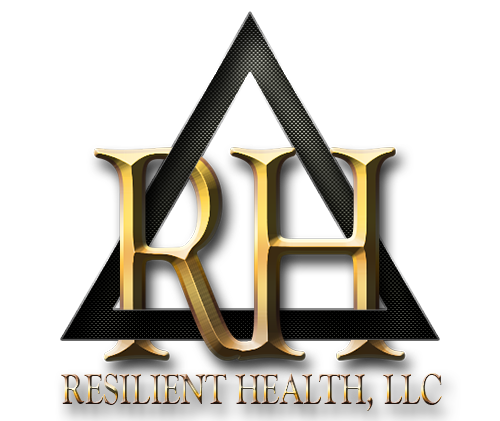How High-Protein Diets Can Transform Your Fitness Goals
Protein is more than just a buzzword in the world of fitness and nutrition. It’s a crucial macronutrient that plays a central role in muscle repair, recovery, and fat loss. Whether you're aiming to lose weight, gain muscle, or simply maintain a healthy body, a high-protein diet can significantly enhance your fitness results. Let’s dive into the science behind how protein works in your body and why it’s so essential for achieving your fitness goals.
The Role of Protein in Muscle Repair and Recovery
After a tough workout, your muscles experience micro-tears that need repair. Protein provides the building blocks—amino acids—your body uses to rebuild and strengthen those muscles. This process is called muscle protein synthesis (MPS). The balance between MPS and muscle protein breakdown (MPB) determines whether you gain, maintain, or lose muscle mass.
Studies have shown that consuming protein post-workout helps shift the balance towards MPS, promoting faster recovery and muscle growth. This is particularly important for strength training athletes and anyone looking to improve muscle tone. But it’s not just bodybuilders who benefit. Endurance athletes also experience muscle breakdown during prolonged exercise, and protein is key to helping them recover.
Protein and Fat Loss: The Thermic Effect of Food
One lesser-known but powerful benefit of protein is its ability to boost metabolism. This is due to the thermic effect of food (TEF)—the amount of energy required to digest, absorb, and metabolize nutrients. Protein has the highest TEF of any macronutrient, meaning your body burns more calories processing protein than it does with fats or carbohydrates.
Research shows that diets higher in protein not only help preserve muscle mass during weight loss (which helps keep metabolism higher) but also promote satiety, reducing overall calorie intake. This makes high-protein diets especially effective for fat loss while maintaining lean muscle tissue.
The Best Protein Sources: Whole Foods vs. Supplements
When it comes to sources of protein, not all are created equal. Whole foods like lean meats, eggs, dairy, fish, legumes, and plant-based options like tofu and tempeh provide essential nutrients along with protein. But some sources stand out due to their amino acid profile—particularly the essential amino acids (EAAs) that our bodies cannot produce on their own.
Complete proteins—such as chicken, beef, fish, eggs, and dairy—contain all nine essential amino acids. These are ideal for muscle repair and growth. For those following plant-based diets, combining foods like beans and rice or opting for complete plant proteins like quinoa and soy can ensure you're getting a full amino acid profile.
Protein supplements like whey, casein, and plant-based powders can also be helpful, especially post-workout when your body craves quick recovery fuel. Whey protein is absorbed rapidly and is ideal for post-exercise muscle repair, while casein digests slowly, making it a good option before bed to support overnight muscle maintenance.
How to Calculate Your Protein Needs
The amount of protein you need depends on various factors, including your activity level, body composition goals, and overall calorie intake. For the average person, the Recommended Dietary Allowance (RDA) for protein is about 0.8 grams per kilogram (g/kg) of body weight. However, for those engaged in regular physical activity, especially resistance training, higher intakes are often recommended to maximize muscle repair and growth.
Here’s a simple guideline for protein intake based on your goals:
Maintenance: 1.2 - 1.6 g/kg of body weight
Fat Loss: 1.6 - 2.2 g/kg of body weight (higher end helps preserve muscle)
Muscle Gain: 1.6 - 2.4 g/kg of body weight
For example, a 70-kg (154-pound) person looking to build muscle would aim for about 112 - 168 grams of protein per day. To optimize protein distribution, aim to spread your intake across meals, with about 20-40 grams per meal, depending on your total daily protein goal.
Why High-Protein Diets Are Crucial for Performance and Weight Management
Beyond muscle growth and fat loss, protein plays a critical role in overall athletic performance. Adequate protein intake helps with:
Muscle preservation during caloric deficits: When you’re cutting calories, your body may break down muscle tissue for energy. A high-protein diet prevents this, allowing you to lose fat while retaining muscle.
Enhanced recovery: Consuming protein before and after workouts reduces muscle soreness and accelerates recovery times, enabling you to perform at a higher intensity during subsequent sessions.
Improved body composition: Protein helps you not only lose fat but also gain muscle, leading to a leaner, stronger physique. This improves not only your metabolic rate but also functional strength and endurance.
In summary, protein is a powerful ally in your fitness journey. By incorporating high-quality protein sources into your diet and meeting your daily intake goals, you can accelerate muscle recovery, boost fat loss, and improve overall athletic performance. Whether you're just starting your fitness journey or are a seasoned athlete, focusing on your protein intake could be the game-changing factor in reaching your goals.

